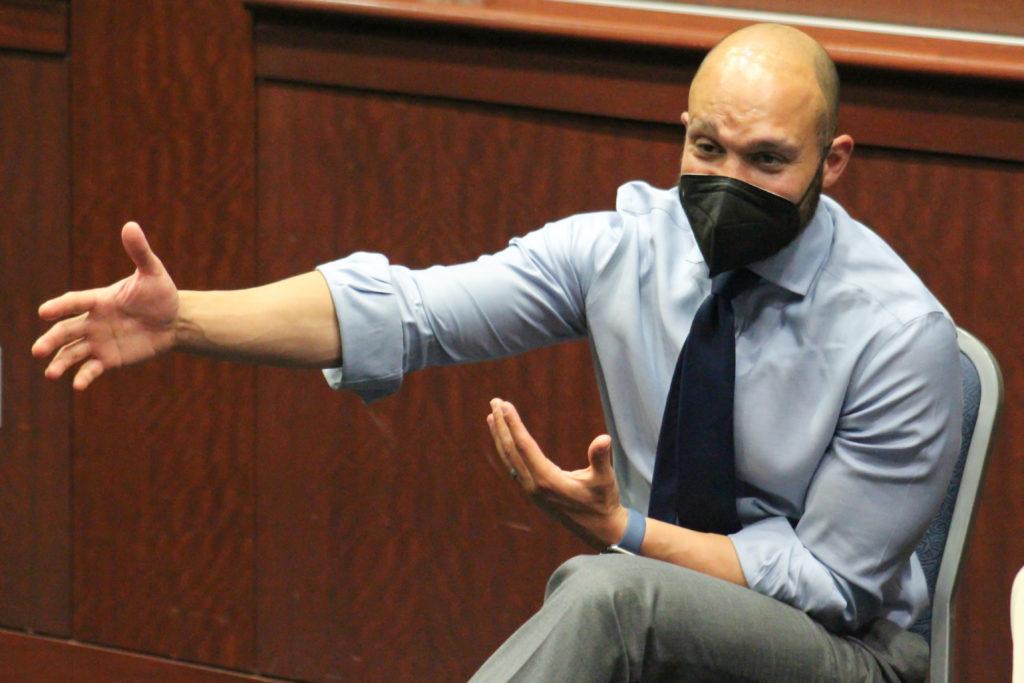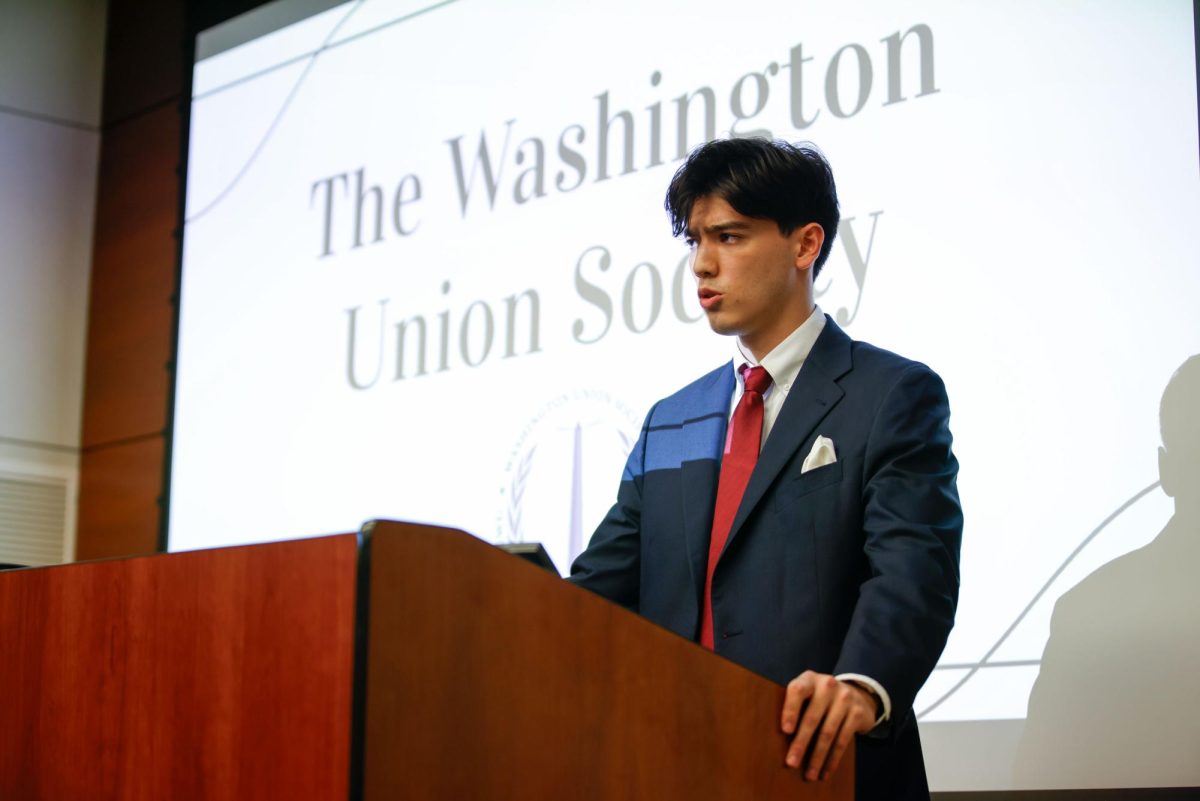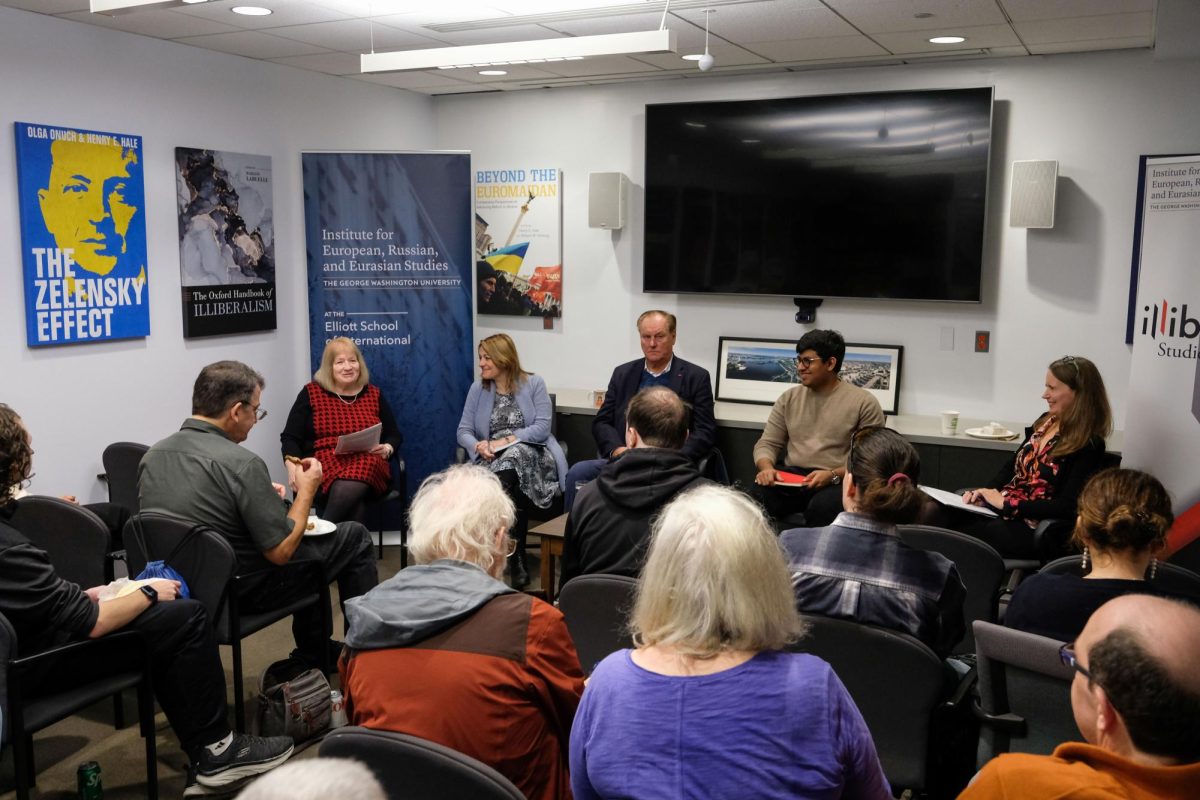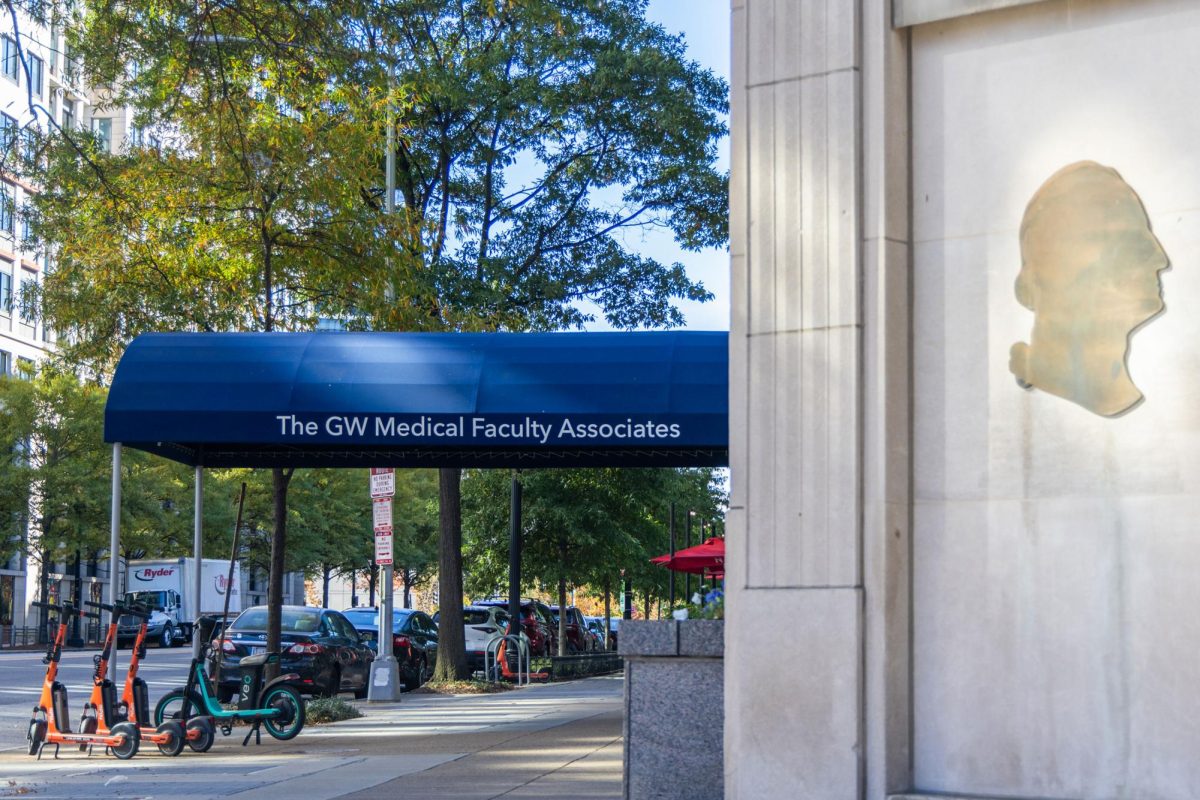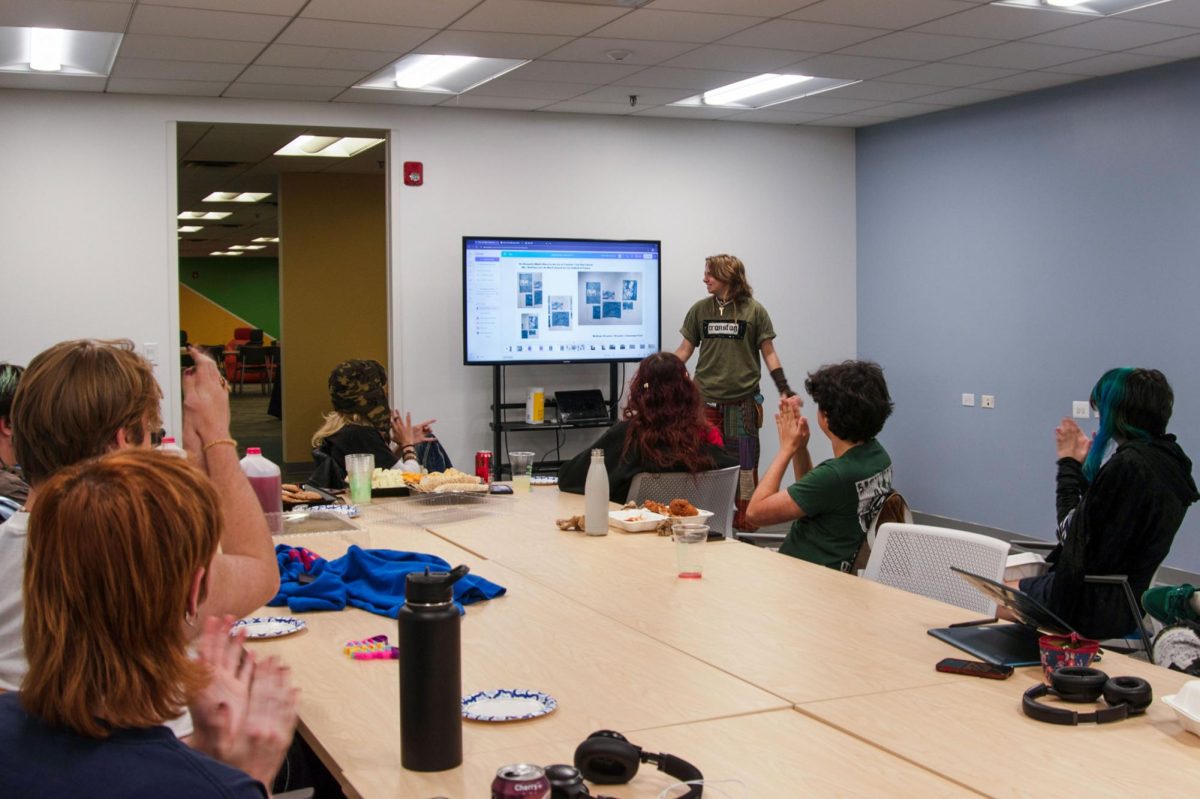D.C. mayoral candidate and at-Large Council member Robert White discussed his campaign and plans for the city in the University Student Center Thursday. at an event that
White opened the event discussing his connections to the District and some of the current policy issues facing the city, including homelessness, a lack of housing affordability and D.C. statehood to about 20 students. GW College Democrats hosted the event, which was moderated by PJ Johnson, the president of GW College Democrats.
White said political interns, many of whom are college students in D.C. and at GW, are the driving force behind his campaign and make up much of his support among younger voters. He said volunteering or interning for local political campaigns like his own serve as one of the best ways for young students to get involved in politics and policymaking.
“The interns that table, work, that ask questions and that get involved, you stand above the crowd in a big way, so jump in,” he said.
White, a fifth-generation D.C. resident, outlined many of his goals as mayor, including lowering homicide rates, combating poverty and expanding affordable housing. He said many parts of D.C. have been the subject of gentrification – a practice where investment in neighborhoods makes property prices too high for lower-income residents living in the area.
The District was named the 13th most-gentrified city in the United States, down from the most-gentrified city the previous year in a report published in 2020 by the the National Community Reinvestment Coalition, an organization aiming to end housing discrimination.
“Almost every member of my family has been priced out of this city.” he said. “That includes my dad, my brother, aunts, uncles, cousins, almost everybody in my family other than me and my aunt who lives in the house that my grandparents bought in 1963. I had this crazy idea that I should run for office to be a voice for people like my family.”
White said the city’s large homeless population is “embarrassing” for the District considering the relative wealth of the city. D.C. has the second-highest median income of U.S. cities and the tenth-highest population of people experiencing homelessness, according to government data from 2020.
“It is embarrassing that one of the wealthiest jurisdictions in the nation has so much homelessness, but addressing homelessness requires more than money,” he said. “It also requires compassion.”
White said the District’s government leadership has not done enough to help the city’s current homeless populations. He said the D.C. Council’s housing voucher program – an initiative meant to give funding for D.C. residents to find permanent housing – has not been effective because it does not address some of the root causes of poverty, like mental illness and substance abuse.
He also said Mayor Muriel Bowser’s policy to use police to clear out homelessness encampments throughout the District has left many people with mental health issues without a place to live.
“The D.C. Council last year, over the objection of the mayor, funded enough housing vouchers to house every single unhoused resident in our city,” he said. “And still what do you see outside? You see tons of people without housing.”
White said Bowser’s leadership has put a strain on the relationship between the city and its homeless population. He said he wants to focus on building a trusting relationship between these two forces, moving gradually because building relationships could “take time.”
“In talking with people at these encampments, I’ve come to realize that the only difference between them and me is luck or blessing,” he said.
White highlighted education policy and reform as the backbone of his campaign platform at the event. Even though the District spent nearly two billion dollars on educational improvements, he said 75 percent of Black students are behind in school.
“I was one of those young people who was counted out,” White said. “There is nothing profoundly special about me that is not special about these young people. We need to give them opportunities.”
White said he supports D.C. statehood so it can garner full representation in Congress. He said the federal requirement for District residents to pay taxed without a voting share in major national decisions, like declaring war, is “inherently unfair.”
“There is a myth that D.C. can’t be a state because it doesn’t have enough funding,” he said. “So a lot of people believe that the federal government funds the District of Columbia – absolutely not true – the District of Columbia funds the District of Columbia.”


